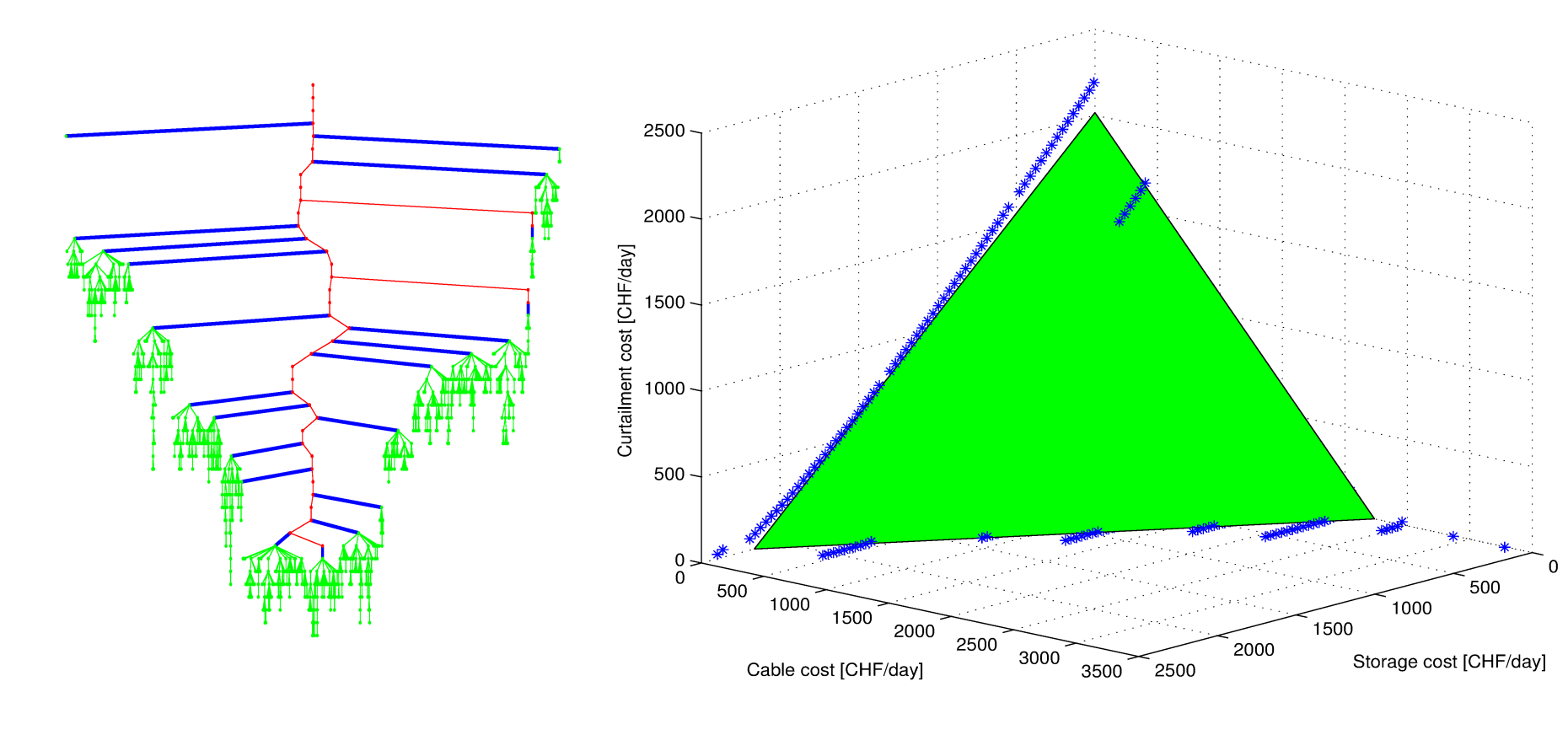Integration of RES in the Swiss distribution grid
The ISCHESS project studies the optimal transformation of the Swiss energy supply towards a more sustainable system through the integration of Renewable Energy Sources (RES). The first project phase evaluates the impact of RES at the Swiss distribution grid level. The second project phase extends the study to the national scale of the Swiss transmission grid.
Recently planned energy and climate policies encourage the increased deployment of RES, such as wind and solar, in the Swiss energy supply system.RES have a low carbon footprint and can operate on a small scale in the distribution grid.
However, they are typically variable and produce uncontrollable and partly unpredictable amounts of electricity over time.
To ensure that the generated electricity matches the consumption at all times, additional stability measures have to be provided for systems with a high share of RES. The ISCHESS project studies the integration measures required for increasing the penetration level of distributed RES in the Swiss electrical supply system.The project analyzes and compares four different RES integration approaches:
(1) Classical network reinforcements of lines and transformer, (2) the employment of storage units to shift demand and supply peaks in time, (3) the employment of dispatchable loads such as household water heaters and hydrolizers, (4) the direct curtailment of excess RES generation that can not be incorporated in the network.
The four strategies and combinations thereof are tested on a benchmark model derived from distribution grids of the central Swiss region.The findings provide a quantitative decision function for RES integration strategies and illustrate a large potential of flexibility measures such as storages and dispatchable loads.They are currently expanded to a long term study on the Swiss national level.
Collaboration of Research Center for Energy Networks (FEN-ETHZ), Laboratory for Energy Systems Analysis (LEA-PSI) and HSLU.
The ESC member involved in this project is Dr. Turhan Demiray at the Research Centre for Energy Networks of ETH Zurich (Forschungsstelle Energienetze - FEN).
The FEN was established in June 2011 to contribute to answering the energy challenges of today and the future towards a more sustainable energy system with a special focus on energy networks by means of independent, credible, applied and interdisciplinary research. FEN acts as a bridge between academic research, industrial needs and social issues related to energy policy, shaping the transition to a more sustainable, reliable and cost effective future energy.
Further information about research on optimal grid planning and operation can be found at the FEN webpage.
